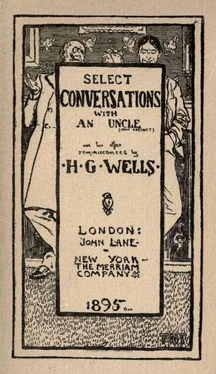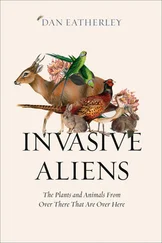"If," said the second man, his voice a little unsteady, as though he was moved, "if it eases your mind to talk of your nose, pray talk."
"This nose, I say then, makes me think of the false noses of Carnival times. Your dullest man has but to stick one on, and lo! mirth, wit, and jollity. They are enough to make anything funny. I doubt if even an Anglican bishop could wear one with impunity. Put an angel in one. How would you like one popped on to you now? Think of going love-making, or addressing a public meeting, or dying gloriously, in a nose like mine! Angelina laughs in your face, the public laughs, the executioner at your martyrdom can hardly light the faggots for laughing. By heaven! it is no joke. Often and often I have rebelled, and said, 'I will not have this nose!'"
"But what can one do?"
"It is destiny. The bitter tragedy of it is that it is so comic. Only, God knows, how glad I shall be when the Carnival is over, and I may take the thing off and put it aside. The worst has been this business of love. My mind is not unrefined, my body is healthy. I know what tenderness is. But what woman could overlook a nose like mine? How could she shut out her visions of it, and look her love into my eyes, glaring at her over its immensity? I should have to make love through an Inquisitor's hood, with its holes cut for the eyes—and even then the shape would show. I have read, I have been told, I can imagine what a lover's face is like—a sweet woman's face radiant with love. But this Millbank penitentiary of flesh chills their dear hearts."
He broke off suddenly, with loud ferocious curses. A young man who had been sitting very close to a young woman on an adjacent seat, started up and said "Ssh!".
He whom the man with the nose had addressed now spoke. "I have certainly never thought before of a red nose as a sorrowful thing, but as you put it...."
"I thought you would understand. I have had this nose all my life. The outline was done, even though the colour was wanting, in my school days. They called me 'Nosey,' 'Ovid,' 'Cicero,' 'Rhino,' and the 'Excrescence.' It has ripened with the slow years, as fate deepens in the progress of a tragedy. Love, the business of life, is a sealed book to me. To be alone! I would thank heaven.... But no! a blind woman could feel the shape of it."
"Besides love," interrupted the young man thoughtfully, "there are other things worth living for—duty. An unattractive nose would not interfere with that. Some people think it is rather more important than love. I admit your loss, of course."
"That only carries out the evidence of your voice, and tells me you are young. My dear young fellow, duty is a very fine thing indeed, but believe me, it is too colourless as a motive. There is no delight in duty. You will know that at my age. And besides, I have an infinite capacity for love and sympathy, an infinite bitterness in this solitude of my soul. I infer that you would moralise on my discontent, but I know I have seen a little of men and things from behind this ambuscade—only a truly artistic man would fall into the sympathetic attitude that attracted me. My life has had even too much of observation in it, and to the systematic anthropologist, nothing tells a man's character more than his pose after dark, when nobody seems watching. As you sit, the black outline of you is clear against the sky. Ah! now you are sitting stiffer. But you are no Calvinist. My friend, the best of life is its delights, and the best of delights is loving and being loved. And for that—this nose! Well, there are plenty of second-best things. After dark I can forget the monster a little. Spring is delightful, air on the Downs is delightful; it is fine to see the stars circling in the sky, while lying among the heather. Even this London sky is soothing at night, though the edge is all inflamed. The shadow of my nose is darkest by day. But to-night I am bitter, because of to-morrow."
"Why, to-morrow?" said the younger man.
"I have to meet some new people to-morrow," said the man with the nose. "There is an odd look, a mingling of amusement and pity, I am only too familiar with. My cousin, who is a gifted hostess, promises people my nose as a treat."
"Yes, that must be bad for you," said the young man.
And then the silence healed again, and presently the man with the nose got up and passed into the dimness upon the slope of the hill. The young man watched him vanish, wondering vainly how it would be possible to console a soul under such a burthen.










